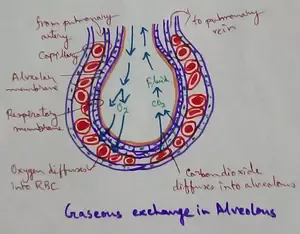Distributive Pronouns
Distributive Pronoun is that Pronoun which describes members of a group individually and not collectively. It refers to a person or a thing taken one at a time and hence always singular.
The Pronoun that is used to indicate all members of the representative group are called Distributive forms.
I. In many an instances, Distributive pronoun is used with a plural Noun but Singular Verb especially when words like Each, Either and Neither are followed by the word ‘of’.
Examples:
1. Each of the articles threw definite light on the subject.
2. Neither of the children is eligible to draw the benefits.
3. Either of you is all right for the job..
4. Any of the candidates is qualified.
5. Either of the road leads to the railway station.
II. Distributive Pronoun is always singular and used with Singular Verb.
Examples:
1. Each of you is different.
2. Neither of this is correct.
III. The Pronoun is used to indicate all members of the representative group.
IV. Please note that there is never a Noun used after Distributive Pronouns and this is what sets it apart from Distributive Adjectives.
Difference between Distributive Pronouns and Distributive Adjectives:
Example –
1. Each of them was given a chocolate. (D.P)
2. Each boy was given a chocolate. (D.A)
They both refer to members of a group as individuals showing how something is divided or distributed / shared among the group but the difference lies in the way they are incorporated into the structure of the sentence and the way they function.
Distributive Pronouns are used as either the subject or object in a sentence and never followed by a Noun whilst Distributive Adjectives are modifying words, followed by a Noun, invariably.
Examples:
1. Each of the student was given two chapattis .(Each being the subject , this is an example of D.P)
2. Each student was given two chapattis .(Each being a modifying word , this is an example of D.A)
Let’s look into the words that form Distributive Pronouns
V. Each Refers to individual items / persons in a group setting.
E.g.: Each of them was brilliant.
The word ‘Each’ can go in different positions in the sentence.
E.g.,: She hugged each of them on entering the classroom.
She hugged them each on entering the classroom.
Each of the boys was given a present,
They boys were each handed a present.
The pens cost Rs. 70 each.
Each of the pens cost Rs. 70.
VI. Either and neither are used while speaking of two persons or things. When more than two persons or things are spoken of, any, no one or none, everyone shall be used
E,g.: Either of you is fit to take his place under the sun.
Neither of you is willing to put in the extra effort needed for the assignment.
VII. Any, None, Noone are used to denote two or more things or persons.
E.g.: Noone was willing to turn up or the event.
Any of them can attend the meeting,
None of the members agreed to the hike in school fees.
We invited many friends but none came for the event.
Everyone, present here, must take their dinner.
English Grammar and Composition
From Distributive Pronouns to HOME PAGE
Recent Articles
-
Formed Elements of Blood | Erythrocytes | ESR |Leukocytes |Neutrophils
Jan 15, 26 01:25 AM
Formed elements formed elements are constitute about 45 % of blood afeias haematocrit value packed cell volume mostly of red blood corpuscles and are of 3 types- erythrocytes, leukocytes and blood pla… -
What Is Plasma? | Blood Plasma | Proteins | Nutrients | Cholesterol
Nov 07, 25 10:29 AM
Blood is a mobile fluid which is a connective tissue and is derived from the mesoderm like cell any other connective tissue. Colour of blood is reddish and that flows inside the blood vessels by means… -
Disorders of Respiratory System | Tuberculosis | Pleurisy | Emphysema
Oct 28, 25 11:39 PM
Tuberculosis is very common disease and is caused by a type of bacteria called Mycobacterium tuberculosis. This disease causes different trouble in the respiration and infection of several parts of th… -
Regulation of Respiration | Respiratory Centres | Inspiratory Area |
Oct 14, 25 12:13 AM
Respiratory Centre is the area that controls the rate of respiration and it is observed to be located in medulla oblongata and pons. Respiratory Centre has the following will dispersed components like… -
Explain Transport of Gases | External Respiration | Tissue Respiration
Oct 09, 25 11:35 PM
In humans gaseous exchange is completed in the following ways the steps are - External Respiration or Breathing - Breathing in false taking in of Oxygen and giving out of carbon dioxide in the body. M…





New! Comments
Have your say about what you just read! Leave me a comment in the box below.